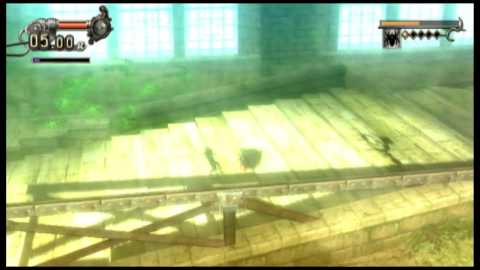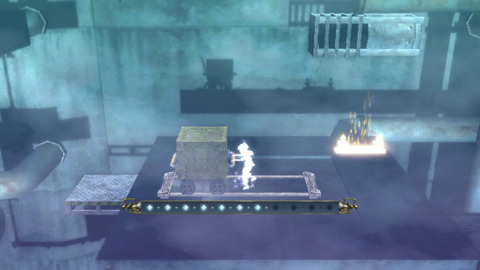We spend a lot of time looking at a game's length as some kind of quantifiable measurement of value to a product, but in truth, a long game does not necessarily equal a better game. Take Lost in Shadow, a new platformer from Hudson which revolves around an unusual concept: as the detached shadow of a young boy, you can only traverse the shadows of objects in the three-dimensional realm. This is a game with a novel idea, and one that, for a while, feels fresh and fascinating. But as hours pass and the game continues on, that once fresh feeling eventually gives way to monotony. Its fitful attempts to evolve the experience do little to break up hours upon hours of merely solid and largely unremarkable platforming levels that feel like little more than the filler required to make this a retail, disc-based product, and not a digitally released title.
It's a shame, because Lost in Shadow most certainly piques one's curiosity from the get-go, albeit not through any form of narrative. You know little going into Lost in Shadow, beyond an opening cutscene that depicts a brutish executioner slicing a boy's shadow from his body, and tossing it from the top of an absurdly tall tower. You, the shadow, awake at the bottom, and with the help of an inexplicable fairy that wordlessly appears and begins assisting you, your goal is to get to the top of that tower... and then go back down... and then unexpectedly keep on going until the game just up and decides to end.

Sadly, that moment passes, and brilliance never comes to fruition. While the game's method of shadow puppetry intrigues at the outset, malaise begins to set in after several hours of repetitive gameplay--and then gets piled on after even more hours of that seemingly endless repetition. The best platformers find a way to ramp up the difficulty slowly, methodically, with a key understanding of what the player has experienced early on, and building upon those experiences. Lost in Shadow more or less does the same thing again, and again, and again, for hours on end with only periodic bouts of difficulty peppered in at random moments. The level designs start out interestingly enough, but fail to evolve into anything more than a shadowy riff on the same sorts of platforming gimmicks you've seen done a billion times before.
The game toys with some variety, offering up shadow corridors, which twist physics in some interesting ways, and light gates, which turn your shadow into a glowing, three-dimensional being that can navigate the foreground for a limited time--but little is done with these concepts outside of the same repetitive gimmicks over and over again. True cleverness simply seems to elude Lost in Shadow, and its few brushes with it come so late in the game that some people will have likely given up before they get anywhere near these moments.

Before eventually submitting to tedium, Lost in Shadow is an easy game to like. It shows you a stellar idea (that it sadly proceeds to squander) and offers up a visual aesthetic that is absolutely pleasing to look at. The way light and shadow are depicted and played off one another are great, and while the art style owes a great deal to Team ICO--like, Hudson should probably just cut those guys a check now and get it over with--it's a particularly pretty derivation that stands out among many of the best-looking Wii games.
As I trudged through hour after hour of Lost in Shadow's adventure, a singular, pervasive thought cycled through my head: I wished this game were shorter. Besides the combat, there's nothing particularly awful or busted-feeling to endure, but the middling nature of the platforming becomes a tiring slog as the game goes on, and on, and on, refusing to lean on anything but its novel concept. If the developers had cut things down to maybe half (or even a quarter) of its current length, and focused on polishing up the game's best, cleverest levels, Lost in Shadow might've had a chance of standing out as something legitimately special.